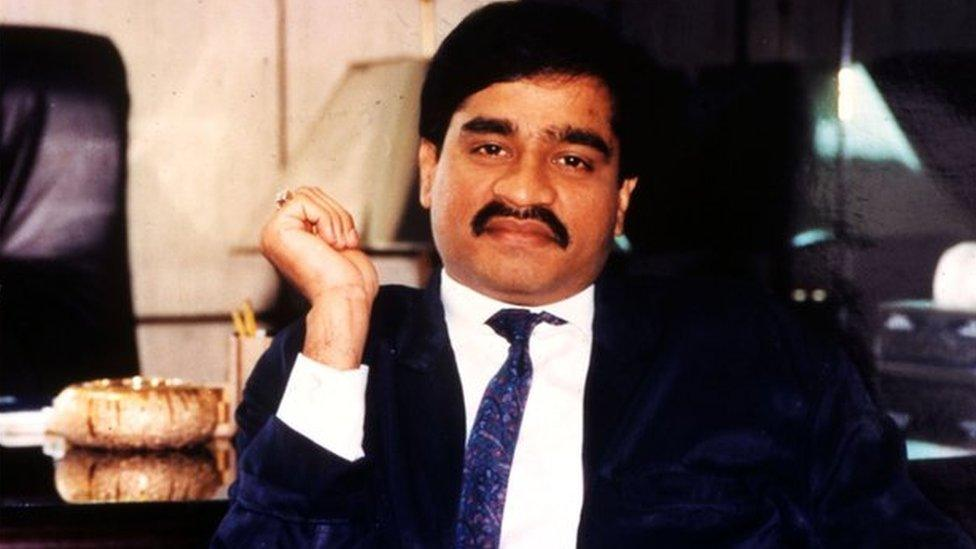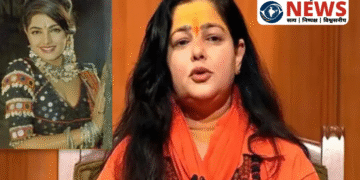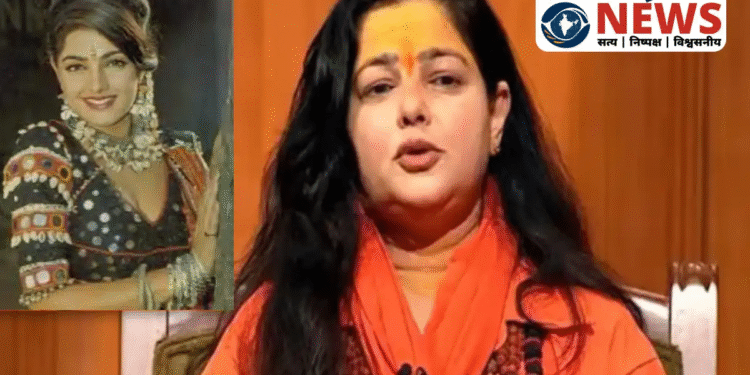VIDEO: Actress Mamta Kulkarni controversially claims Dawood Ibrahim never carried out the Mumbai bomb blasts, giving him a clean chit
Former Bollywood actress‑turned‑spiritual figure Mamta Kulkarni triggered a major controversy after her remarks about one of India’s most wanted fugitives, Dawood Ibrahim. During a public event in Gorakhpur, Kulkarni stated that “Dawood Ibrahim did not carry out the Mumbai blasts” and asserted that he “is not a terrorist.” The comments rapidly attracted widespread national attention, drawing sharp criticism from legal experts, law‑enforcement officials, victims’ families and social‑media users.
Within two days, Kulkarni issued a clarification, stating that she had in fact been referring to someone else (Vicky Goswami) and not Dawood, and that her words had been misunderstood. She reaffirmed that Dawood is indeed a terrorist.
Here’s a comprehensive breakdown of the event, its background, the reactions, the legal ramifications, and what this means going forward.
The Statement That Sparked the Row
At a press conference held in Gorakhpur during her three‑day spiritual tour, Mamta Kulkarni said:
“Dawood Ibrahim did not carry out the Mumbai blasts and is not a terrorist.”
“Dawood se mera door‑door se koi lena dena nahi hai… Jiska naam mera sath link hota hai, usne Mumbai mein bomb blast nahi kiya.”
She emphasised she had no personal connection with Dawood and alleged that the name associated with hers (implicitly Vicky Goswami) had done no anti‑national or blast‑related activity.
Given Dawood Ibrahim’s long‑standing status as a prime accused in the 1993 Mumbai serial bomb blasts, which killed 257 and injured over 1,400, the statement drew immediate outrage.

Why These Remarks Were Problematic
The controversy centres on several serious issues:
- Contradiction to findings
Dawood Ibrahim and his network (D‑Company) have been repeatedly linked by Indian investigative agencies with the 1993 Mumbai blasts. Publicly questioning his involvement touches on highly sensitive national‑security narratives. - Insensitive timing and context
The 1993 blasts remain a scar in India’s collective memory. Any comments suggesting that Dawood was not responsible risk offending victims’ families and survivors. - Public figure responsibility
Kulkarni, once a mass‑popular actress, has now repositioned herself as a spiritual guru. Her words carry weight and influence; therefore ambiguous or controversial statements raise questions of accountability. - Potential legal / defamation implications
Legal experts such as Ujjwal Nikam, the special public prosecutor in the blasts case, publicly warned of possible action.
The Clarification & Damage Control
In the face of mounting criticism, Kulkarni issued a clarification on 30 October 2025:
“I was referring to Vicky Goswami, not Dawood. Dawood is indeed a terrorist and I have never met him.”
She stated that her original intent was to clarify misconceptions around her name’s linkage and that she meant no disrespect to victims of terrorism. She reiterated her focus on spirituality and her disassociation from politics or alleged criminal networks.
However, many critics maintained that the clarification came after the viral spread of the original remarks, thus questioning its timing and sincerity.

A Short Biography & Context on Mamta Kulkarni
- Bollywood career: Kulkarni rose to fame in the 1990s with films like Karan Arjun, Baazi, Sabse Bada Khiladi. She was known for glamour as much as dance‑skills.
- Departure from industry: In the early 2000s she gradually withdrew from mainstream cinema and later embraced a spiritual path.
- Controversial associations: Her past has seen allegations of involvement with Vicky Goswami (an accused in international drug trafficking) and other underworld‑links, though she has denied wrongdoing.
- Spiritual role: She later assumed the title of Mahamandaleshwar in the Kinnar Akhada, an unusual role for a former film‑star.
This background is relevant because her recent statement intersects with her identity as a spiritual figure and raises questions about past associations, credibility and current influence.

Reactions: Public, Legal, Media
Social Media & Public
- The original video clip of her remark went viral on X/Twitter and other platforms; many users criticised her insensitivity.
- Some questioned why such claims were made without evidence, while others flagged the responsibility of celebrities in making public statements about terrorism.
Legal & Investigative Response
- Ujjwal Nikam called her remarks “talking nonsense” and warned that legal consequences could follow.
- Investigative agencies stressing the seriousness of the 1993 blasts found the remarks troubling from a public‑order perspective.
Media Coverage
- News outlets in English and Hindi covered the story extensively, emphasising the shock value and the clarifications that followed.
- Commentary pieces questioned whether the statement was ignorance, carelessness, or something more.
Key Questions Raised
- Why did Mamta Kulkarni say what she did?
Her explanation refers to the notion that her name was “linked” to someone accused (Vicky Goswami) who she claims was not involved in blasts. Whether the word‑play led to the statement or whether she genuinely believed Dawood was not responsible remains unclear. - What responsibility do public figures have when speaking of terrorism?
Celebrities retain influence—even when claiming a spiritual path. Statements about terrorists or national‑security incidents are sensitive and can impact public sentiment, victims’ memories and law‑enforcement narratives. - Will there be legal consequences?
If an official complaint is filed alleging defamation of victims or interference with an ongoing judicial process, she might face scrutiny—though it remains to be seen. - Does this affect her spiritual identity and credibility?
Given that she has positioned herself as a guru, controversial remarks may damage her standing among followers or invite scrutiny from religious‑linguistic communities. - What about the broader issue of the 1993 blasts and Dawood’s role?
The case remains a part of India’s major criminal‑terrorism history. While investigations and court processes have implicated Dawood, any public challenge to that narrative invites controversy.
What Happens Next?
- Media outlets will continue to follow how Kulkarni’s clarification evolves, whether she offers a public apology, and whether any legal petitions are filed.
- Her spiritual‑guru role may be called into question in public debate, leading to further introspection of her statements in spiritual gatherings.
- The focus may also shift to how social media amplifies controversial statements and the consequences they carry for public discourse.
- For victims’ families of the 1993 blasts, this episode may reopen emotional wounds, prompting calls for proactive responses from political, judicial or civil‑society organisations.
Final Thoughts
The incident underscores a potent mix of Bollywood history, underworld narratives, spiritual identity and public responsibility. When a former actress speaks about a major terrorism figure like Dawood Ibrahim, the ripples are wide.
Whether Mamta Kulkarni intended a bold clarification or simply mis‑spoke, the episode acts as a reminder: while free speech is a right, statements involving terrorism, historic tragedies and national trauma demand caution, clarity and context.
In today’s hyper‑connected world, a moment’s remark can become a global flashpoint. For Mamta Kulkarni, the question remains: will this be a momentary controversy or a turning point in how public figures reckon with their past, their influence and their voice?















 Categories
Categories









